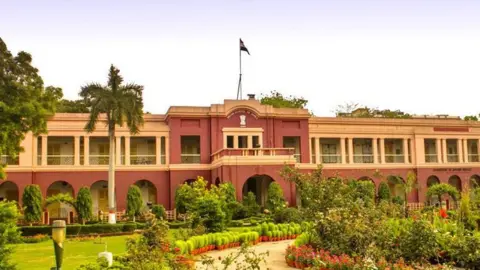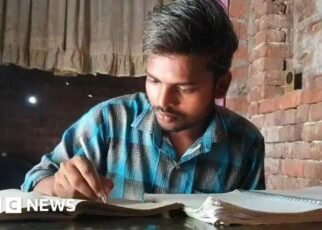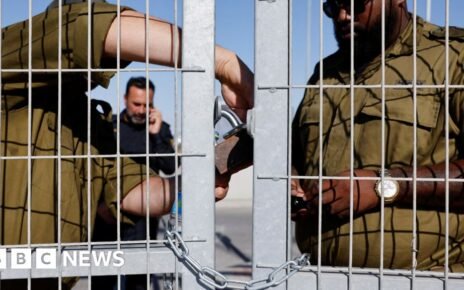[ad_1]
 Amit Saini
Amit SainiAtul Kumar, 18, was ecstatic when he found out in June that he had passed a tough examination that would allow him to join a prestigious technology college in India.
But then came the next step: paying 17,500 rupees ($281; £156) online to confirm his admission. It was a big amount for the family from Muzaffarnagar in the northern Indian state of Uttar Pradesh.
His father managed to borrow the money, but Atul says he missed the online fee deadline by a few seconds, partly due to technical issues.
The family didn’t give up, filing petitions and court cases. This week, India’s top court stepped in and ordered the Indian Institute of Technology (IIT), Dhanbad, to restore Atul’s admission.
The Supreme Court invoked its extraordinary powers granted by India’s constitution, saying that “we cannot allow such a young talented boy to go away”.
The IITs are India’s top technology institutes, attracting more than a million candidates for nearly 18,000 seats in 23 colleges spread across the country. Students spend years in private coaching centres to prepare for the exams, and parents believe joining an IIT is a ticket to success.
Atul’s story has made headlines in India because of his financially deprived background and the challenges he overcame.

Atul is from the Dalit community, which lies at the bottom of India’s caste hierarchy and is among the most marginalised in the country.
His father Rajendra Kumar earns about 450 rupees ($5; £4) a day as a daily wage labourer and his mother weaves cots at home.
But Rajendra Kumar says that nothing was more important to him than his children’s education. He even sold his house once to fund his eldest son’s studies, he told the BBC.
Two of Atul’s brothers are studying engineering at reputed colleges, while a third is doing a bachelor’s degree from a college in Muzaffarnagar.
Atul knew he also had to study hard, and he did that for hours every day in a dark corner of his house which got little sunlight. Erratic electricity supply made things worse, with daily power cuts lasting hours.
Rajendra Kumar says buying an inverter didn’t make sense as it cost nearly 25,000 rupees.
“But I would have sold the house [again] if needed,” he adds.
Atul had joined a free coaching centre for marginalised students in a nearby city, and this year was his last out of the two attempts allowed in IIT entrance examinations.
When Atul passed the exam, his father asked for help from a local moneylender. But the man backed out two hours before the fee deadline.
The father then had to turn to his friends, who immediately chipped in with 14,000 rupees. Rajendra Kumar dipped into his savings for the remaining 3,500 rupees.
He quickly deposited the amount in his eldest son’s bank account, while Atul logged in to complete the formalities.
By then, he had just 180 seconds left for the deadline.
“We tried to complete the task that requires many more minutes’ work in three minutes,” Rajendra Kumar said.
But the portal froze suddenly, he says, and Atul missed the deadline.
In shock, no-one in the family ate for a day.
 Wikimedia commons
Wikimedia commonsAtul’s coaching centre reached out to IIT Dhanbad but his petition says they did not help him. The desperate family wrote emails to several college authorities and moved another court, but nothing worked.
The only option left now was the Supreme Court. In 2021, the court had allowed a Dalit student to join IIT Bombay after he also couldn’t pay his admission fee on time due to financial and technical difficulties.
Atul and his father contacted that student who put them in touch with the lawyer who fought his case.
In the Supreme Court, IIT Dhanbad argued that Atul had logged into the payment portal at 3pm, which indicated that it was not a last-minute attempt. It also pointed out that Atul was sent multiple reminders through text messages, well before the deadline.
But the court asked IIT why it was so keen to oppose his admission.
The court observed that there was no reason why the petitioner would not have paid the amount if he had the means to do so and ordered IIT Dhanbad to create an additional seat for Atul in the current batch.
The Chief Justice of India DY Chandrachud then wished him luck in his studies.
“All the best, do well!,” he said.
[ad_2]
Source link




